TRANS-PACIFIC PARTNERSHIP TALKS: There should be a balance of rights and obligations, writes Khor Eng Hee
SECRECY surrounds current negotiations taking place on the Trans-Pacific Partnership (TPP), a plurilateral trade negotiation carried out so far by 11 countries to establish a regional free-trade area. Japan was admitted as the 12th participating member on July 23.
Certain parts or chapters of the draft text of the TPP, however, have been leaked on the Internet. Consequently, much interest has now been aroused among people worldwide about the main players, their motives and of the issues involved.
Trade liberalisation, as the Uruguay Round (UR) has shown, does not necessarily bring benefits to participants equally.
Major adjustments are often required in the economy and these can be costly. A country's business and industrial enterprises must be prepared and capable to compete in world trade, and to face such competition at home to profit from such liberalisation.
When elements of geopolitics are added to trade liberalisation, the outcome does not impact just on trade.
Some of the obligations can be liabilities. They can constrain development efforts because of the restraint in legal commitments undertaken either unwittingly or under pressure.
This article discusses the TPP in a general manner. It takes up one or two of the salient features of the proposed agreement as these have been leaked out. Readers will need to understand that it is written under such qualification.
The terms and conditions including the sectors involved in the proposed agreement are still kept away from the public. These, in addition, are evolving as negotiations progress.
However, from what has been leaked out, there seems to be some features in the draft TPP text not seen in the 50 years of the General Agreement on Tariffs and Trade's (GATT) history and in the World Trade Organisation's (WTO) institutional and legal framework.
Some of the commitments proposed seem to go beyond those accepted in the WTO or other regional free-trade areas in sectors like environment, labour standards, intellectual property rights protection, investment, competition, etc. Many of these proposals would have serious implications.
Observers note that of the 29 chapters of the TPP, only two deal with trade. There is nothing strange about such an approach as major participating countries do attempt to use trade negotiations to pursue their other economic or political strategic concerns and aims in international relations.
Developing countries also enter into trade negotiations with some plan and ambition. However, their efforts do not have the strategic interests or impact compared with those of major advanced nations.
Theirs is simply social and economic growth and development. They do not yet possess the strength and influence to aim for a more ambitious power play.
One other unusual feature is the proposal that private economic enterprises and their individuals in sectors covered by the agreement would be empowered to sue the government of another party for what they claim to be breach of commitments, and because of this, for loss, direct or indirect.
Some observers are of the view that what is proposed puts the government answerable to the enterprises of another party rather than the other way around when they establish themselves in another country. This would put lesser countries at the mercy of multinational corporations, some of whose annual budget is even bigger than their government's.
The host government would open itself to all sorts of litigation, not just government-to-government as in the GATT in the past, now in the WTO or in most other existing free trade areas.
Such commitments will apply to all members of the agreement once they are adopted and come into effect. While developed members have the human and financial resources to deal with such a problem or are au fait with such a practice in their culture, are developing members on par with their developed counterparts?
Such a principle or legal rule if applied to services trade such as financial and banking services as an example, would tie down governments from regulatory corrective actions in the event of financial volatility and other crisis that the world today is prone to. Hedge funds, for example, would have a heyday.
Threat of punitive action would be sufficient to pressure particularly weaker member countries. This would act as a strong constraint on any affirmative policy measures towards national economic development and growth.
For one thing, capital control would be out of the toolkit of central banks to prevent a sudden surge of outflows of capital under these proposed terms and conditions.
The number of free trade agreements so far concluded and studied by some scholars and think tanks show that the use of different rules of origin is discouraging some foreign businesses from making use of some of these free trade areas as it adds up transaction costs.
One common question in the corridors of the GATT that I used to hear in my days in Geneva was: "At the end of the day, is there a balance of rights and obligations?"
One answer is that it may be too late if one waits for the end of the day to ask such a question. What is the use of such rights if developing countries, because of weakness, cannot make use of them.
Read more: Unusual features in leaked TPP proposals - Columnist - New Straits Times http://www.nst.com.my/opinion/columnist/unusual-features-in-leaked-tpp-proposals-1.347808?localLinksEnabled=false#ixzz2dhKe4xHA






























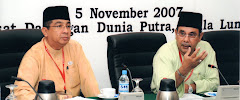


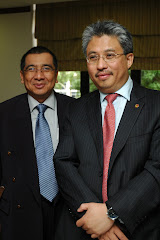
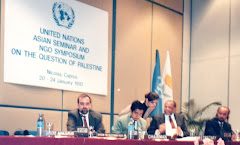
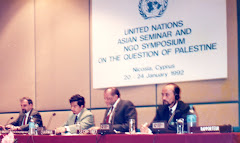

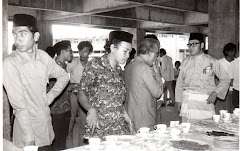



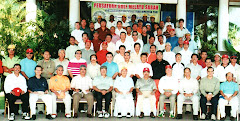





No comments:
Post a Comment